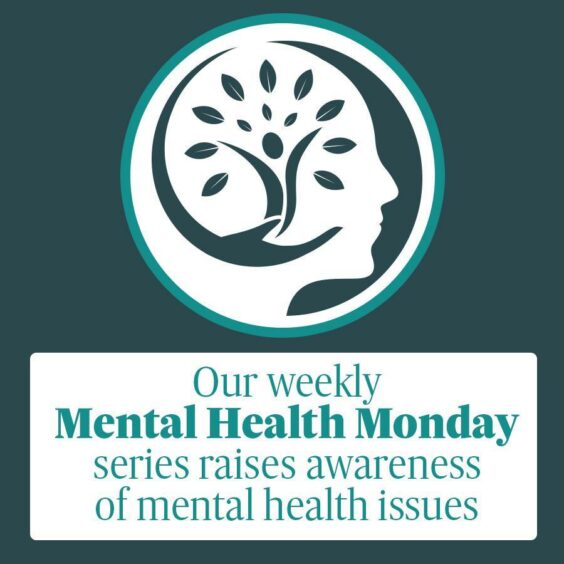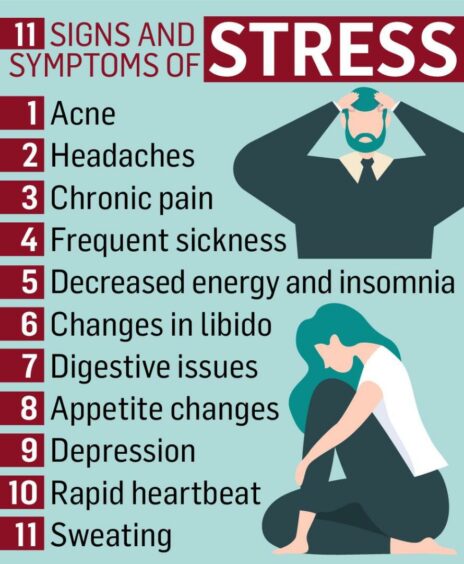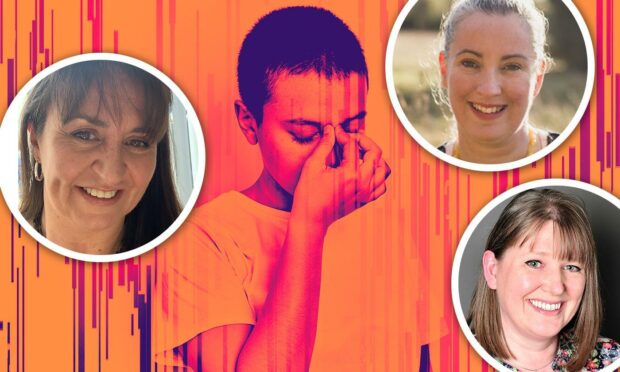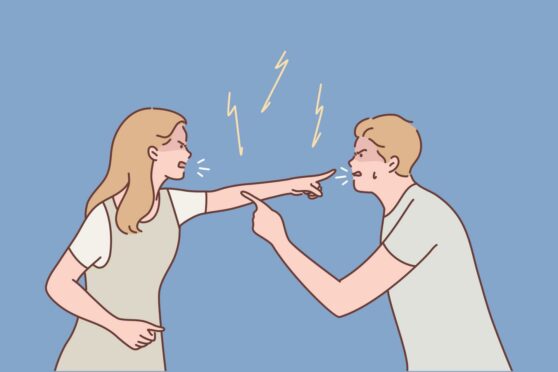We all know what it’s like to feel stressed and when we’re facing too much stress at one time it can start to feel overwhelming.
Sometimes it’s difficult to know how to cope and these past 18 months have certainly been challenging for us all.
But there are simple strategies you can learn to help you manage it so that it doesn’t have a long term impact on your health.
This week, as part of our Mental Health Monday series, we’re bringing you expert advice from Inverness College UHI psychology lecturer Nikki Perrin, who offers us help on how to lower our stress levels.

What is stress?
We often think about stress as either a physical or an emotional response to a situation.
Nikki highlights that there’s two types of stress – acute and chronic.
You’re more likely dealing with acute stress when faced with a short-term issue such as a tyre puncture or a letter arriving from debt collectors.
But chronic stress is dealing with longer-term issues like managing health conditions or ongoing financial difficulties.
While feeling under pressure you’ll likely be more alert because stress hormones, such as cortisol, are being released into your bloodstream to help you concentrate.
Can moderate stress be good for the body?
Moderate short-term stress can help make us feel more alert, improving our performance and also our memory.
That’s why many people find they work best under pressure with deadlines in place to help them stay focused.
But Nikki says it’s only good for us in short bursts.
“It’s fine if it’s short-lived and a reasonable amount of stress but if we leave it too late it’s really intense and it becomes overwhelming, becoming counteractive,” she said.
“Short, moderate amounts of stress can be useful, but it’s quite hard for us to have some control over that sometimes.
“It can get us into bad habits of actually living in a state of constant stress which isn’t going to help us.”
How does stress affect us?
Too much stress can affect our bodies in different ways. We might struggle to concentrate or communicate and it can cause confusion.
Our digestive systems can be affected and we can suffer headaches and problems with insomnia.
Long-term stress can increase our anxiety and cause depression.
But there are strategies we can use to help us cope.
How can exercise help?
“Exercise is a really useful tool to help manage stress,” Nikki says. “There’s lots of research showing that stress can be reduced and your mood improved through exercise.
“Mainly it’s producing endorphins, our brain’s feel-good neurotransmitters, and that can counteract that physical stress response – it’s putting those stress hormones into use and in turn reducing them.
“Often when people are exercising they find it can have the same effects as mindfulness in terms of you’re focusing on what you’re doing; you’re forgetting everything else around you and you’re just focusing on that task.
“This is where exercise can be really helpful.”
Being out in nature also helps – but you need to engage with it
Research shows that being out in nature has a restorative effect on our bodies. It can reduce anger, fear and reduces our blood pressure, heart rate and muscle tension.
But Nikki says we actually need to engage with nature to feel the benefits.
“Engaging with nature is important,” she said. “I’ve been out on dog walks surrounded by trees and lochs and the most beautiful surroundings but my mind is focused on work.
“I’m thinking about life stresses; I’m thinking about deadlines, and I’m not paying attention to what’s around me.
“So just being exposed to nature isn’t necessarily enough. We need to think about trying to focus on nature, paying attention to it, observing the colours and the sounds and noticing the smells.
“That’s not always an easy thing to do but sometimes listening to music can be a way to calm yourself and your thoughts down and then you start to notice what’s around you.”
But if we can’t get outside there’s a body of research which shows even just looking out of a wind0w, or watching nature documentaries can help shift our mood.
And how can videos of laughing babies help?
Nikki also highlights that laughter really can be the best medicine.
Watching funny blooper reels – and even videos of babies laughing – can be one of the quickest ways to bring a smile to your face.
This can help you unwind during your lunch break and you can find lots of these videos on social media sites such as YouTube.
She explains that for most people watching cute babies laughing quickly shifts the emotional response you may be having when you’re feeling stressed.
Nikki’s top tips on how to use your five senses to manage your stress levels:













